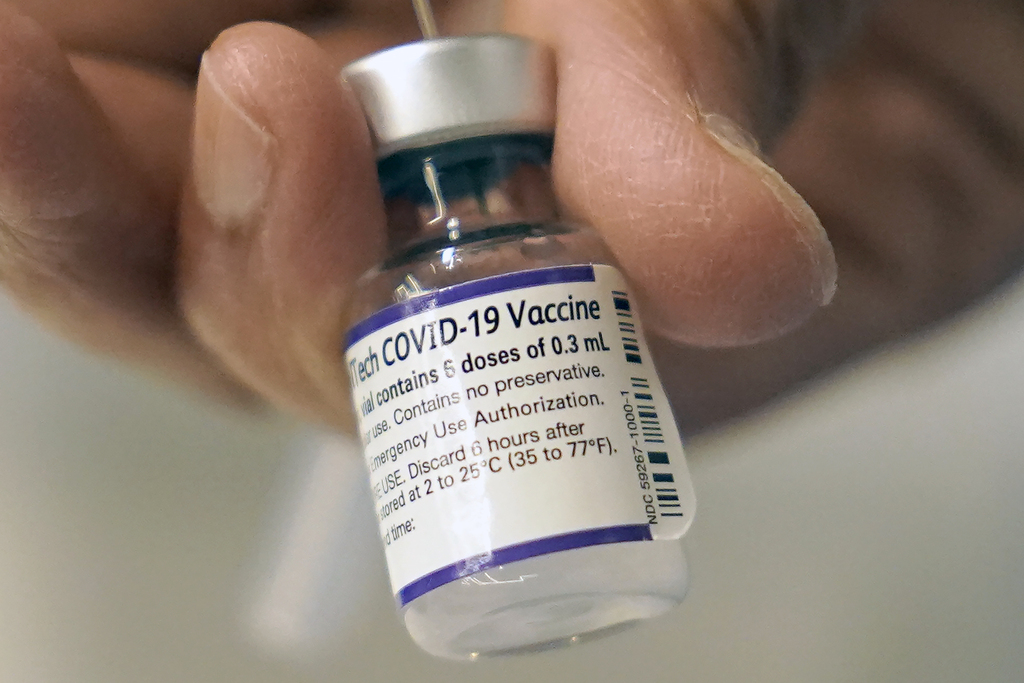
The Centers for Disease Control and Prevention has modified its COVID-19 vaccine dosing recommendations, advising that for the young and healthy — especially males — it may be better to allow eight weeks between the two Pfizer or Moderna shots than the approved three- or four-week interval.
A number of physicians and medical experts have been privately making similar recommendations based on practices and experience in other countries to alleviate concerns about rare side effects, and the CDC’s expert panel endorsed the idea earlier this month. But it’s unclear how much the guidance shift, which the CDC did little to publicize Tuesday, will change U.S. vaccination practices.
“This is a huge opportunity for us to ramp up vaccine acceptance,” said Dr. Michael Daignault, an emergency room physician at Providence Saint Joseph Medical Center in Burbank who urged a longer dosing interval in a MedPage Today article with Dr. Monica Gandhi at the University of California-San Francisco. “I just hope they take the next step and be more public about it.”
The CDC earlier this month had signaled such a shift in dosing interval guidance in a presentation to its advisory panel of vaccine experts. Panelists at that Feb. 4 meeting all supported the longer dosing interval but it wasn’t clear afterward if or when any change would be made. Pfizer and Moderna representative voiced no objections or concerns about extending time between shots.
Studies in other countries such as Canada and the United Kingdom showed a longer interval between the shots improved their effectiveness in preventing disease and further reduced risk of a rare but serious side effect — heart inflammation, or myocarditis — seen most often in boys and young men, the CDC said. The benefits peaked at eight weeks between shots.
The CDC noted that for higher-risk people and in situations where COVID-19 is widespread, limiting protection to a single dose for two months might raise disease risks during that period. But expert panelists said that is less of a concern with cases now in retreat.
“I did find the data that was presented from Canada . . . and from around the world very persuasive, that an extended interval particularly in younger persons at increased risk of myocarditis would be particularly beneficial,” said panelist Dr. Katherine Poehling, a pediatrician at Wake Forest School of Medicine in North Carolina. “When the pandemic is receding, this is a particularly good time to do a prolonged interval.”
In updates to its guidance Tuesday, the CDC noted the Pfizer vaccine is approved with a three-week interval between first and second doses and the Moderna vaccine a four-week interval. The CDC said that “continues to be the recommended interval for people who are moderately to severely immunocompromised, adults ages 65 years and older, and others who need rapid protection due to increased concern about community transmission or risk of severe disease.”
But while maintaining that the vaccines “are safe and effective” at those FDA-approved intervals, the CDC said “a longer interval may be considered for some populations.” The CDC noted that “while absolute risk remains small, the relative risk for myocarditis,” or heart inflammation, “is higher for males ages 12-39 years, and this risk might be reduced by extending the interval between the first and second dose.”
“Therefore, an 8-week interval may be optimal for some people ages 12 years and older, especially for males ages 12–39 years,” the CDC said.
The CDC’s Dr. Sara Oliver told the agency’s vaccine experts that the potential benefit in modifying the guidance would be to increase vaccinations among some 33 million unvaccinated people ages 12-39 who might feel more comfortable getting the shots if risks were even lower.
CDC spokeswoman Kristen Nordlund said Wednesday that the guidance change is intended “to help healthcare providers determine the optimal interval between the first and second dose” of Pfizer or Moderna “based on the individual patient.”
Related Articles
Coronavirus: Orange County reported 946 new cases and 19 more deaths, Feb. 23
Is omicron leading us closer to herd immunity against COVID?
Study: COVID patients may face long-term cardiovascular problems
Coronavirus: Orange County’s cases drop 70% in two weeks, with 760 new cases reported over holiday weekend
COVID’s aftershock: Delayed treatments will likely jolt healthcare system for years
The California Department of Public Health said Wednesday it “is aligning with the CDC’s updated clinical considerations document, which allows providers to consider waiting up to eight weeks before administering the second dose” of the vaccines.
Oliver said the three- to four-week interval between the first two doses was based on a need to get protection from the virus as quickly as possible. But Daignault and other experts noted that few multi-dose vaccines are given with so little time between shots, and that more time allows the body to develop more robust immunity. He said extending the dosing interval may even reduce the need for a booster dose, though Oliver told the CDC’s expert panel that the CDC is still recommending boosters five months after the second dose.
Daignault said concerns about heart inflammation are “still a sticking point for a lot of parents” he speaks with and that the guidance update “can make a huge difference getting that population vaccinated.”
